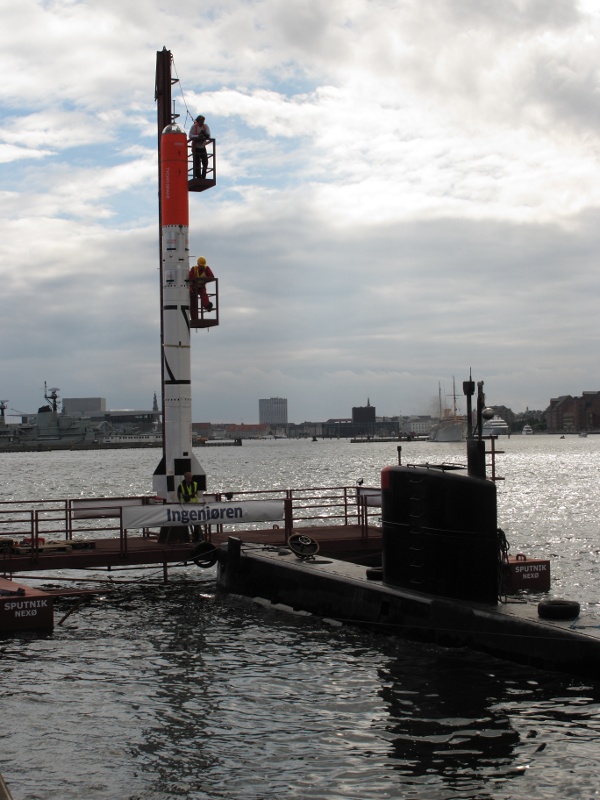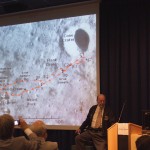In 2010 I became aware of a group in Denmark Copenhagen Suborbitals.
The group is building rockets, rather big ones, no New Year’s fireworks.
Given the size of their vehicles they could not get permission to launch from land (Denmark is a small country, and has no large deserted areas). What did they do ? Easy ! If you can not launch from land, then it must be from the sea.
In the summer 2010 I went to the presentation of their Mark 1 sea launch platform, named Sputnik. It was set to sea carrying the rocket, using a crane. This is one of the better pictures I got from the presentation.

The Mark 1 of the platform is not self powered, so they used another self made project for propulsion of the platform, yes, it is a submarine you see on the picture.
The rocket itself is 9m (30ft) tall and 60cm (2ft) diameter.
The first launch attempt later in the year failed. The count went down to 0 and – nothing happened. Well, the pyrotechnics went off as expected, but the rocket stayed in place. The failure was due to a frozen valve for the liquid oxygen.
They learned a lot about procedure and tech from the failure, and one year later, June 2011 a modified rocket and launch platform (this time self propelled) were used. Counting down to 0 and – nothing happened. After a look at the telemetry it was found that the launch signal had not arrived, and 10 – 15 minutes later another attempt was made, and off it went. I do not have pictures from that event, since only active members of the group were allowed in the area. They did, however publish a press kit on the website.
Their criterion for success was that the rocket lifted itself above the platform, the flight went up to about 2km when the flight was aborted from the ground, in order to stay within the designated area.
The rocket had no active steering and veered off like a missile. The “payload” was recovered, but not the engine stage. More on this project later.


